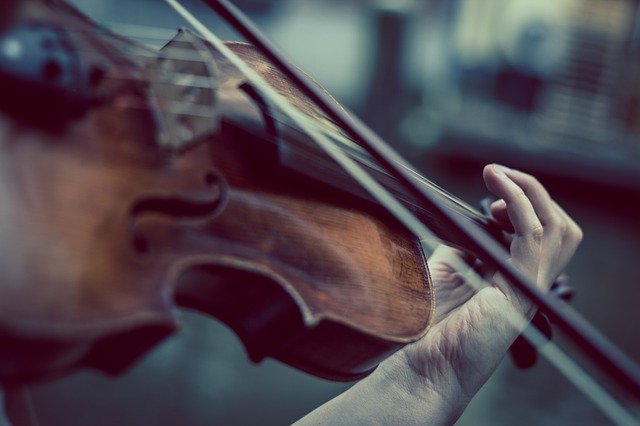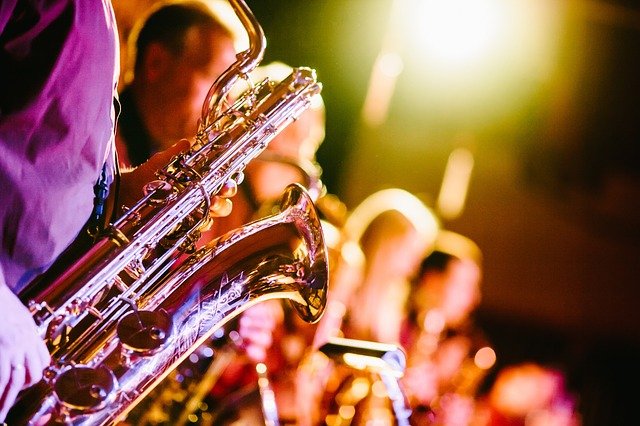Musical production has traditionally been marked by the seasons, both in terms of education and on stage. Every year, two different periods can be distinguished: between the months of September and June, when the school year and concert seasons take place, and the summer period, consisting of holidays and festivals. This year, as we all know, the situation that has generated the pandemic caused by Covid-19 has resulted in a series of changes in the live music scene. Will these changes alter our cultural habits forever?
By Anna Alvarez Calleja/ 16.10.2020
Since we became aware of the existence of the virus, there have been alterations to our way of life. We can even differentiate several stages of change that our daily lives have gone through. It is true that these adaptations have not always been possible simultaneously in every part of the world. However, we would like to reflect on what we are going to call the three stages that have followed one another in the live music sector.
Stage 0:
From December 2019 to February 2020, musical events were carried out in the traditional way. In spaces like concert halls, auditoriums, theatres, football stadiums, and even music schools and conservatories, musicians and the public could share music in the way they have always been used to. Did we have any idea that the way of interacting at musical events, which has remained generally constant since the middle of the 19th century, was going to be impractical so soon?

Stage 1: From March 2020 to July 2020
Certainly one of the most critcal stages that live music has suffered in the last 100 years (since World War II). In several countries, restrictions on personal mobility were imposed to varying degrees, from more or less strict confinements, to changes in the forms of movement (closing of borders, reducing capacity in trains, airplanes etc). These restrictions have an effect on the interaction of people at live music concerts and consequently has led to multiple responses.
On one hand, most concert halls and auditoriums chose to suspend their concert seasons. To make up for this, they offered special programming offered by way of streaming and revisiting past concerts. One of the great advantages of this offer is that it was, for the most part, completely free and accessible to anyone from anywhere in the world. As an example, the Royal Concertgebouw auditorium in Amsterdam offered streaming concert recordings of their orchestra.
Many of these concerts remain available to the public and can be accessed from the institution’s websites. In Spain, the National Centre for Musical Diffusion proposed something similar, including concerts not only of classical music but also of pop, urban music and even the latest trends in traditional music fusion. From the United States, a unique offer appeared from the Metropolitan Opera of New York, which made many of its great productions available to opera lovers for 24 hours.

Stage 2: From July 2020 to September 2020
With the summer period, you would expect the many festivals of all musical genres that take place each year. Given the situation of the pandemic, we have seen two different responses offered by organisers. Most have chosen to cancel the festivals and offer, as an alternative, retransmissions of the best moments from past years. This has been the case of Glastonbury festival or the BBC Proms.
However, there have been a few brave festival proposals that, either because of their history, size or location have decided to go ahead with the 2020 event, applying restrictions and special sanitary measures. This has been the case of the Salzburg Festival, which this year celebrated its 100th anniversary, and of the San Sebastián Musical Fortnight.
Similarly, some auditoriums have held concerts not usually seen in this season, such as the Berlin Philharmonie and its Parisian counterpart, who are offering their concerts in streaming and with the special collaboration of the television channels Mezzo and Medici.tv.

Stage 3: September 2020 onwards
Any other year, September would be the month where the concert seasons begins, just like the school year. It is true that, while many of the summer festivals were cancelled or postpooned, the few concerts that have taken place have served to test the conditions in which they are held.
With all this, we observe that, in most of the big capitals, the concert halls have plans to reopen their doors and have rescheduled a small season between September and December, which seems to be loaded with a renewed illusion. A prominent example is that of the Hungarian Opera House, which offered a free Crown Gala on September 7, 2020. Otherwise, the custom of streaming seems like it will continue, this time live, although it will no longer be free, as established by Wigmore Chamber Music Hall in London or already offered in the past by the Berlin Philharmonie.
Ultimately, the pandemic has caused the music industry to adapt and provide a response to make up for the inability to access concert halls. In a more or less satisfactory way for the public, technology and the Internet have been key to carrying out this response. From the current situation, we can see an intention to recover live music again, without these intermediaries. But, at the end of the day, we have found a very accessible avenue that can give us ideas for designing the future of live music.
And you? Have you been to any concerts this summer? What has been your experience?
Links that might be of interest for readers:
https://www.concertgebouw.nl/en/watch-free-live-streams-from-the-royal-concertgebouw
http://www.cndm.mcu.es/node/21653
https://live.philharmoniedeparis.fr/



Recent Comments